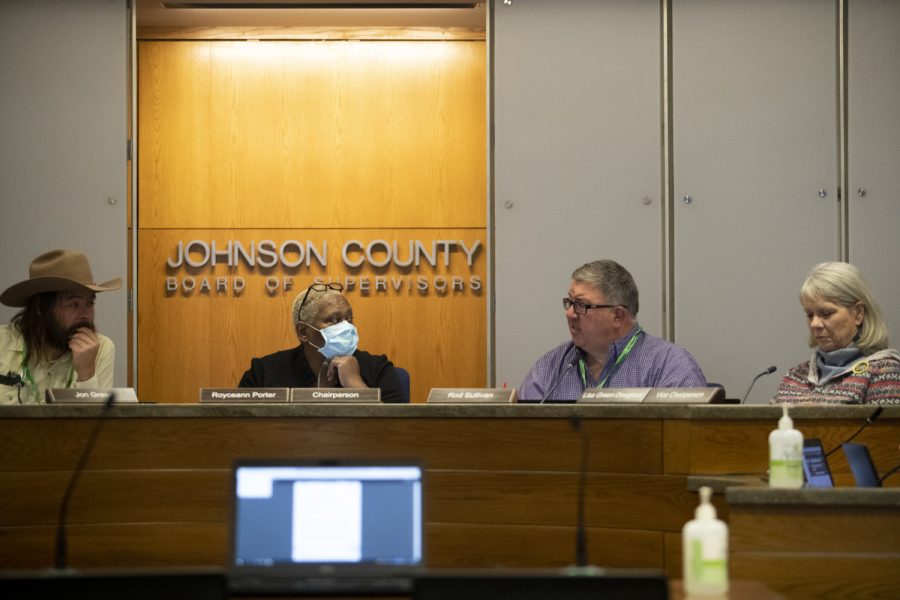Johnson County to honor Lulu Merle Johnson with historical exhibit
The county selected Rebecca Conard, Middle Tennessee University professor emeritus, to conduct research for the future exhibit.
The Board of Supervisors listen to speakers at the Johnson County Administration Building on Wednesday, Oct. 19, 2022.
November 3, 2022
The Johnson County Board of Supervisors unanimously voted Thursday approving a contract to hire a historian who will research the county eponym Lulu Merle Johnson for an interpretative exhibit.
Johnson was made the new eponym for Johnson County on June 24, 2021. Johnson was an alumna of the University of Iowa and made history when she became the first Black woman to earn a Ph.D. from the UI in 1941, and the 10th Black woman to receive a doctorate in the U.S.
The county was originally named after former Vice President Richard Mentor Johnson, a slave owner who had no connection to Johnson County.
The county set aside $26,079 for the exhibit in the fall budget amendment, according to the meeting handout on Thursday.
Rebecca Conard, a professor emeritus from Middle Tennessee University, was hired as the dedicated historian for the exhibit.
Johnson County grants assistant Allison Wells said Conard was a perfect pick thanks to her previous work on a project on Stones River National Battlefield in Tennessee, which involved researching the lives of displaced Black communities from the area.
“It spoke to me that this is the right person who is willing to work with various community groups, with the government to be able to tell the story in an engaging way,” Wells said.
A University of Iowa graduate student will also help with the project, Wells said.
Following the adoption of Johnson as the county’s eponym, the Board of Supervisors decided to create an exhibit about her and Black history in the county, Wells said.
“The board wanted to do something to honor and recognize Dr. Johnson [and] Black history in Johnson County, but also the fact that that wasn’t the original eponym of Johnson County, so we’re not just erasing that history that existed, but recognize it and talk about why the decision was made to change,” Wells said.
Wells said the possible location for the exhibit is currently a strip of land between the Johnson County Administration Building and the staff parking lot. The location, Wells said, ties into the history of the surrounding area.
“What’s nice is it sort of connects directly to the public sidewalk along Dubuque Street, and right across the street from the administration building is the Tate Arms house, which is on the National Register of Historic Places,” Wells said.
For Wells, the exhibit gives the community an opportunity to educate themselves on the namesake of the county.
“…We think this would be a really, really great opportunity to create a site where people will come and learn there, and then come and engage with the exhibits that we’re going to build,” Wells said.



